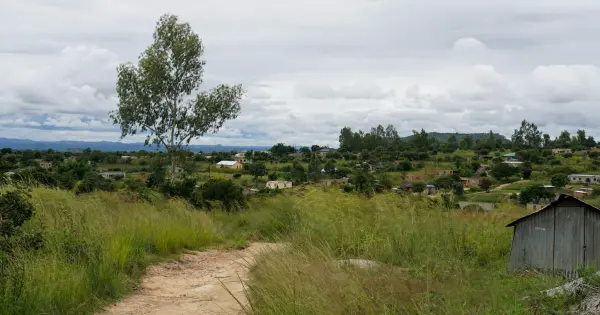Where I grew up a thatched roof was a sure sign of poverty. For our parents who grew up in colonial times, having a zinc-coated roof or even better, an asbestos roof was considered to be a wealth symbol. It meant you had achieved the life that everyone in the village aspired to live.
So as I grew up, I watched as one by one the thatched huts in my village were supplanted by zinc-coated sheets and asbestos roofs. First, it was the “houses” as bedrooms are colloquially known in rural Zimbabwe, then it was the granaries and finally around the mid-2000s people started pulling down their thatched kitchens and replacing them with zinc-coated roofed ones.
Asbestos is no longer considered a safe roofing option given the health hazard they pose to construction workers and those who live in these houses. Yet even with this knowledge, the allure of asbestos as a sign of affluence and the mentality that thatching is for the lower class have persisted. Asbestos sellers are still making brisk business.
That enduring mentality is easily explained by the fact that Millenials, who tend to be the woke ones and are conscious about such things aren’t building as many houses as the older generations. However, thatching isn’t as bad as people have made it out to be and in affluent suburbs, it is actually seen as a sign of wealth.
You should consider a thatched roof
Are you planning on building a house? Then you should consider a thatched roof. Here is why:
- Readily available materials - traditionally in Zimbabwe, the most common grass used for roofing is Jaragua grass scientifically known as hyparrhenia rufa. This grass grows in abundance in most provinces and is readily available as long as you make the arrangements to buy the necessary grass before the fire season. This means before August. Around this month and after that there is an explosion in grass fires that devours all grass and it only starts to be available in large quantities during the late summer months. Some sellers stockpile it and sell it for high prices during these “off-season months”.
- It’s cheap - if you do this right you should be able to spend way less than you would if you use other roofing materials such as tiles and asbestos. One thing to note though is that finding a skilled thatcher can be very hard and this might mean more labour hours compared to saying roofing your house using large zinc sheets.
- It’s healthy and natural - unless you have some very specific allergies, you should be able to live safely in a thatched house without the fear that your roof poses health risks. Grass is a natural material.
- No environmental waste - of course, this assumes that the grass is responsibly harvested. Wanton cutting of grass would lead to environmental degradation but grass is biodegradable. If you care about your children’s future this might be a good thing to consider. When the grass is eventually renewed no toxic synthetic materials are dumped into the environment. Zimbabwe is terrible at recycling but disposing of grass is easy enough as it doesn’t require special expertise or handling.
- It’s thermal properties - those in the UK and other countries often talk fondly of the African sun but it can be scorching. The months of October and November tend to be dry nowadays with temperatures rising as high as 35C in northern and southern parts of the country. A grass roof should be able to mitigate the effects of this sun. Grass will also handle the cooler months of June and July better than say a metal roof would.
Of course, there are disadvantages to using grass as a roofing material but most of these e.g. the affinity for grass to catch fire can be mitigated by taking sensible steps like having a sprinkler system installed (the Zimbabwean fire brigade sometimes struggles to get to fires on time), having a pro install your chimney or avoiding it altogether and having an electrical expert install your wiring instead of doing a hash job yourself.
Overly though, instead of dismissing it, grass should be considered when you are looking at your roofing options.




